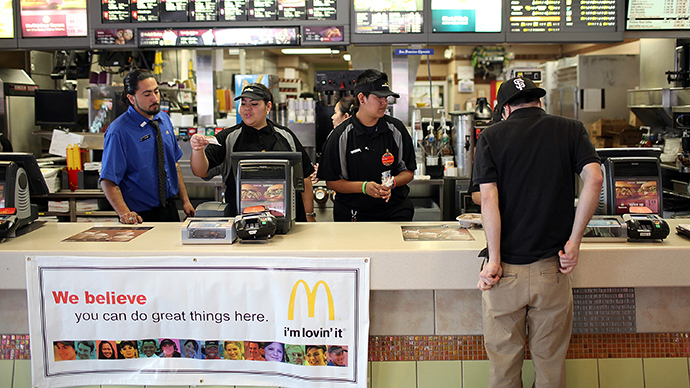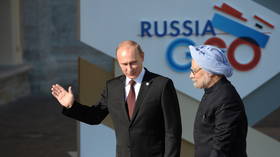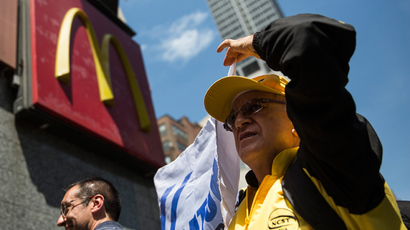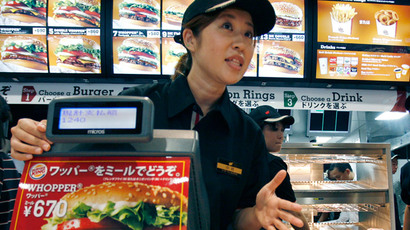McDonald’s faces liability for franchise restaurant workers

McDonald’s could share responsibility for violations by some of its franchise operators, said the US National Labor Relations Board (NLRB). Labor advocates applaud the ruling, which the fast-food chain vows to contest.
The ruling published Tuesday said the world’s biggest fast-food chain could be determined as a joint employer for workers at some of its franchise restaurants.
The labor regulator’s ruling comes in response to 181 unfair labor practice complaints, filed by McDonald’s workers since November 2012. The employees allege their bosses took punitive measures against them, after they had participated in protests for higher wages and better working conditions.
Forty-three of the cases have so far been found to have merit.
“If the parties cannot reach settlement in these cases, complaints will be issued and McDonald’s, USA, LLC will be named as a joint employer respondent,” says NLRB’s Tuesday ruling.
The statement has been keenly welcomed by labor groups, which have long campaigned for McDonald’s to assume responsibly for its franchise operated restaurants.
The Service Employees International Union (SEIU) on Twitter described the decision as a “huge victory”.
HUGE victory for labor & fast food workers! @McDonalds ruled joint employer by NLRB: http://t.co/9Tv7MRx56Q#1upic.twitter.com/ogMIMh4bfv
— SEIU (@SEIU) July 29, 2014
"There's really no doubt who's in charge," said Micah Wissinger, an attorney who brought a case on behalf of McDonald's workers in New York City.
The business community thinks otherwise. McDonald’s has described the decision as wrong and has promised to fight it.
“McDonald’s also believes that this decision changes the rules for thousands of small businesses, and goes against decades of established law regarding the franchise model in the United States,” senior vice president of human resources for McDonald's USA, Heather Smedstad, said in a statement.
In the US, 90% of more than 14,000 McDonald's restaurants are owned and operated by franchisees. The same is true for many other restaurant chains or retailers which have been infuriated with the NLRB ruling.
The International Franchise Association, which represents franchisees, has opposed the possibility of McDonald’s qualifying as a joint employer.
"If franchisors are joint employers with their franchisees, these thousands of small business owners would lose control of the operations and equity they worked so hard to build," the Association’s statement reads.
Worker groups argue that McDonald’s has its franchised restaurants under much tougher control than it officially admits.
The US fast food industry has lately witnessed a wave of protests with participants demanding a raise in the minimum wage to $15 per hour and a right to form unions.
McDonald’s and other companies have argued wages and working conditions were set up by their franchisees and thus distanced themselves from the rallies, something they might not be able to do in future, if NLRB’s decision is upheld.














